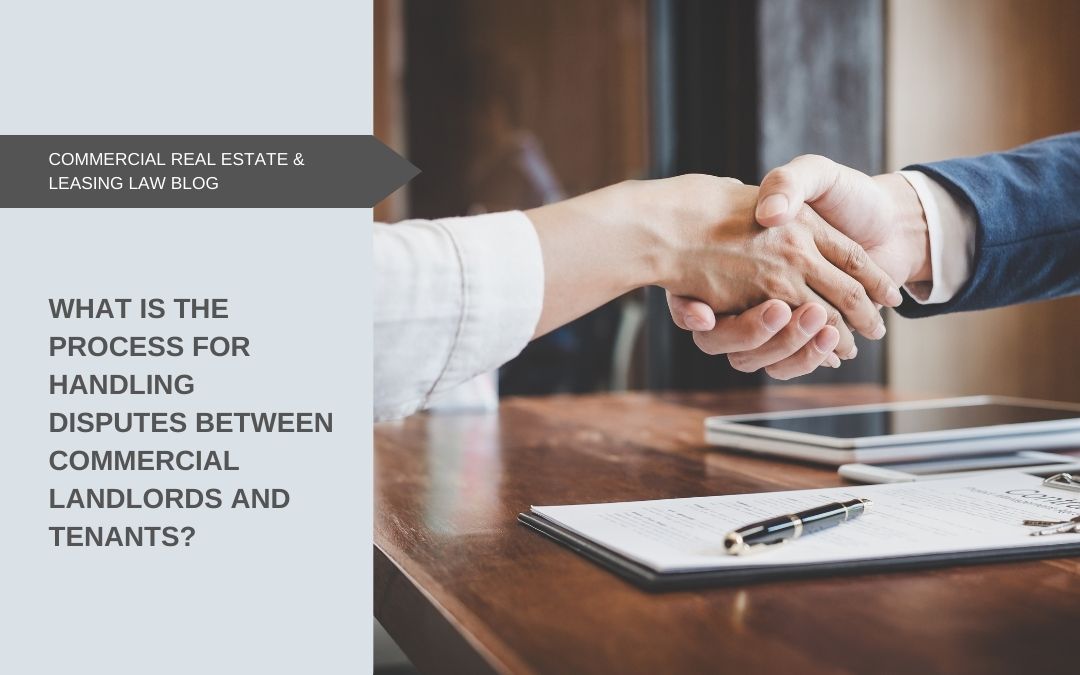Disputes between commercial landlords and tenants can arise due to various issues, such as lease violations, non-payment of rent, property maintenance disagreements, or breaches of contractual obligations. Resolving these disputes requires a systematic approach. Here is a general process for handling disputes between commercial landlords and tenants:
Review the Lease Agreement
Both parties should carefully review the lease agreement to understand their rights, obligations, and any dispute resolution provisions outlined in the contract. It is essential to have a clear understanding of the terms before proceeding with dispute resolution.
Open Communication
The first step in resolving a dispute is to engage in open and honest communication. Both parties should express their concerns, listen to each other’s perspectives, and attempt to find common ground. It may be beneficial to schedule a meeting or engage in written correspondence to discuss the issue thoroughly.
Mediation or Negotiation
If direct communication does not resolve the dispute, the parties may consider engaging in mediation or negotiation. Mediation involves a neutral third party facilitating discussions between the landlord and tenant to reach a mutually acceptable resolution. Negotiation involves direct discussions between the parties with or without the assistance of legal representation.
Alternative Dispute Resolution (ADR)
If mediation or negotiation fails, the parties can explore alternative dispute resolution methods, such as arbitration or adjudication. These processes involve the appointment of a neutral third party who will hear both sides of the dispute and make a binding or non-binding decision to resolve the issue.
Legal Action
If all attempts at resolution through communication and alternative dispute resolution methods prove unsuccessful, either party may choose to pursue legal action. This typically involves filing a lawsuit in the appropriate court. The legal process can be complex, time-consuming, and costly, so it is advisable to consult with legal professionals before taking this step.
Enforcement of Court Orders
If a court renders a decision or issues an order in favor of one party, it is crucial for the prevailing party to take steps to enforce the court’s decision. This may involve executing the order, such as eviction proceedings or enforcing financial judgments.
Throughout the dispute resolution process, it is essential for both landlords and tenants to maintain thorough documentation of all relevant communications, lease agreements, payment records, and any other evidence related to the dispute. This documentation can be crucial in presenting a strong case and protecting one’s rights.
Seeking legal advice from a real estate attorney experienced in commercial landlord-tenant disputes is highly recommended. They can provide guidance specific to the situation, help navigate the legal complexities, and ensure that your rights and interests are protected throughout the dispute resolution process.

